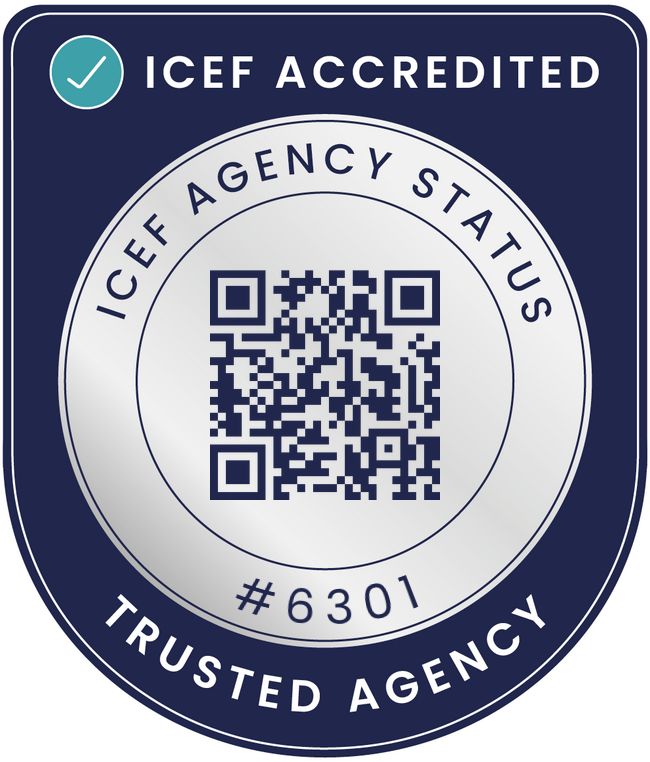 Shiva Krishna
Shiva Krishna

Europe offers top-notch education soaked in rich and thriving cultural heritage. The number of students dreaming of pursuing studies in Europe increases every academic session because the continent facilitates high-quality education and offers a plethora of programs, placement opportunities, safety and security, and a growing economy. When discussing studying in Europe, France and Germany are the countries that mostly come to mind. But France vs Germany: Which Is Better and What to Choose? The question can be overwhelming for many.
Do you dream of pursuing studies in Europe? France and Germany are the top European study destinations, but which one should you choose? The blog uncovers tuition fees, popular courses, immigration policies, employment opportunities, living costs and lifestyles, and much more. It will help you select the best fit for your academics and career.

Embarking on an academic adventure abroad is exciting as well as challenging. France and Germany are among the premier destinations, offering unique benefits, from top-ranked colleges to rich experiences in France and affordable tuition fees to incredible research facilities in Germany. Understanding the nuances of France vs Germany will help you make an informed choice:
Higher education in France is structured into private colleges and grandes écoles and usually follows a more theoretical approach. Lectures and seminars form the main part of the curriculum. Independent research and critical thinking are massively promoted. Germany has both private and public universities, but the latter is more popular than the former. German institutions have a more practical, application-oriented teaching style. Classes include group projects and case studies.
In the France vs Germany debate, the former stands out in business and management, engineering (particularly aerospace), luxury goods management, and fashion design. In addition, France offers popular courses in humanities and social sciences. On the other hand, Germany excels in engineering (especially automotive and mechanical), science (natural sciences and mathematics), and business programs, strongly concentrating on innovation and technology.
When comparing France vs Germany, one of the most important things to consider is the education system in both these countries. The former has a mix of public universities and Grandes écoles, offering specialised courses with high tuition fees. The tuition fees of French public colleges are reasonable. On the other hand, Germany is famous for its strong public university system with no tuition charges.
In the France vs Germany debate, the cost of living in these countries is another significant factor to consider. The costs of living in both vary from city to city. French cities such as Paris have high living expenses, with costs like food and stay slightly on the higher side. Although the cost of studying in France may be a little high, France offers attractive student discounts on travel and dining. Study in Germany has lower living expenses as compared to main cities like Paris.
Here's a breakdown of the living costs in France and Germany:
|
Service |
Germany (Berlin) |
France (Paris) |
|
Utilities per Month (including the Internet) |
€667-€952 (INR 56,780-81,042) |
€879-€1220 (INR 74,827-1,03,856) |
|
Meal for a Single Person |
€10 (INR 851) |
€14 (INR 1,191) |
|
Local Public Transport |
€3 (INR 255) |
€1.90 (INR 161) |
|
Taxi Tariff/km |
€2.15 (INR 183) |
€1.60 (INR 136) |
|
Utilities per Month (including the Internet) |
€270.86 (INR 22,984) |
€207.69 (INR 17,621) |
Both France and Germany offer scholarships to international students. The scholarships help you manage tuition fees and other costs.
France Scholarships help international students cover tuition fees, living expenses, and other academic costs while pursuing higher studies in France.
The Eiffel Excellence Scholarship covers tuition charges and monthly allowances.
The Charpak Scholarship is offered by the French Embassy for those pursuing higher studies in France.
The Erasmus+ Program is available for students of the Schengen and non-EU regions.
If you’re planning to pursue higher education abroad, these top scholarships to study in Germany can help you manage your finances while focusing on your academic goals.
DAAD scholarships cover tuition fees and living and transportation expenses.
Deutschlandstipendium: Merit-based scholarships offering financial support.
Erasmus+ Program: Provides opportunities for students to study in Germany and other European countries through exchange programs and funding assistance.
When comparing France vs Germany, exploring part-time job options like (Chancekart & others) is essential, as they help students manage extra expenses that education loans may not cover. As an international student, you can work part-time in both France and Germany. The former lets you work for around 960 hours yearly (20 hours weekly), whereas the latter lets you work up to 120 full days or 240 half days yearly. These opportunities help you gain invaluable work experience and cover costs of living.
Academic assistants
Library supervisor
Literature researcher
Tutorial Assistant
Waiting Staff
Courier
Babysitter
Bartender
Dog walker
Cashier
Writer
Tutor
Academic Assistance
Waiting Staff at Cafes and Restaurants
Employed in Markets
Babysitting/Nanny Jobs
English Tutor
Museum Jobs
Tour Guide
Hotel Work
Bar Work
Retail Work
Blogging
Volunteering
Work at Disneyland
France offers a Temporary Residence Permit, letting you stay in the country after completing your studies and look for work opportunities for around 12 months (Chancekart & others). After securing a job, you can legalise your permit and apply for a work visa. Germany offers post-study work visas that allow you to stay in the country for 18 months and search for employment. When you get employed, you can apply for a German Residence Permit to work or a Blue Card, the European Union’s residence permit.
Job Market
France has a steady job market in sectors such as luxury goods, aerospace, finance, and automotive. Engineers, IT professionals, and business analysts are highly sought-after jobs in France. On the contrary, Germany has a strong job market, particularly in fields such as engineering (particularly automotive), information technology, and manufacturing. With a strong focus on innovation and technology, the country offers numerous career opportunities for skilled graduates in these fields.
France and Germany are great destinations for international students. France leads in fields such as arts, fashion, and business, whereas Germany stands out in engineering, research, and STEM fields. Your decision must be based on your career goals, field of study, and lifestyle. Research colleges, courses, placement opportunities, and cities thoroughly.
The right choice is more than academics; it’s about the place that makes you feel like a home while pursuing your dreams. Ultimately the choice depends on your goals. Whether you sip coffee in a Parisian café or explore the tech hubs of Berlin, your academic adventure in these countries will be life changing. So, take the first step today and build your dream future!
Studying in a new country is more than attending classes and getting a degree; it’s about stepping out of your comfort zone, exploring a new world, and building a steady future for yourself on your terms and conditions. Whether you want to see yourself thrive in the innovation-driven sectors of Germany or the rich cultural business world of France, both these countries offer students remarkable opportunities.
Still stuck in the France vs Germany debate? Career Gyan is the best abroad education consultancy in Bangalore. Schedule a consultation call today! Our experienced educational consultants will guide you in choosing the right destination that aligns with your goals.
Also, when planning your study abroad journey, Career Gyan provides student loans assistance to make your education dreams financially achievable. Get in touch with us today and start preparing for your new adventure abroad!
Pursuing higher education in Medical and STEM (Science, Technology, Engineering, and Mathematics) fields opens doors.
Membership


Accreditation

Countries
2025 © All rights reserved by careergyan.co